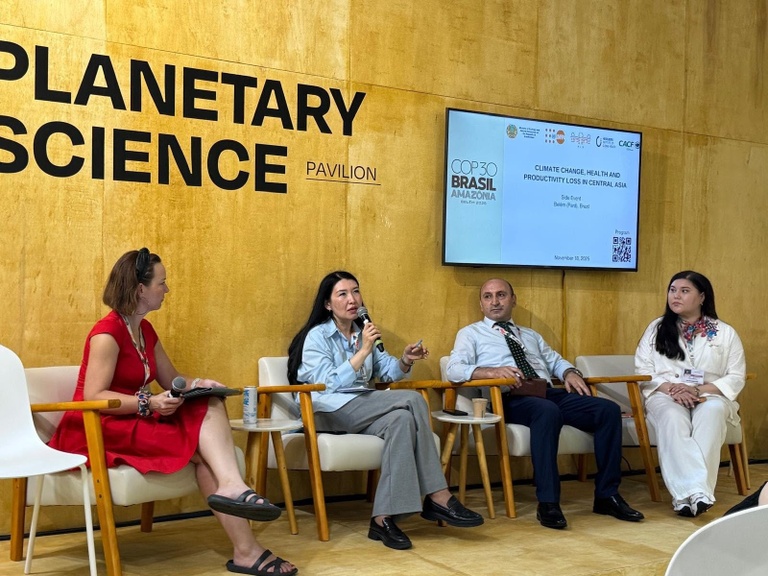
On 18 November 2025, partners from across the region gathered at COP30 in Belém for the side event “Climate Change, Health and Productivity Loss in Central Asia.” The session was co-organized by the Ministry of Ecology and Natural Resources of Kazakhstan, the Potsdam Institute for Climate Impact Research (PIK), the Central Asia Climate Foundation (CACF), United Nations Population Fund (UNFPA), and the Heidelberg Institute for Global Health. The session was moderated by Stefanie Wesch (PIK), member of the Green Central Asia consortium, coordinated by GIZ.
The event opened with remarks by Ms. Dinara Azhigaliyeva (CACF), followed by expert inputs from Dr. Rainer Sauerborn (HIGH), Mr. Klaus Beck (UNFPA), Dr. Iulii Didovets (PIK) and Ms. Oxana Kravtsova (CAREC). Their presentations highlighted the growing impacts of extreme heat on public health, gender-specific impacts, and impacts on labor productivity, as well as the uneven distribution of vulnerabilities across Central Asia.
A dedicated panel discussion followed, featuring government representatives Ms. Shattyk Tastemirova (Kazakhstan), Mr. Turakul Murodzoda (Tajikistan) as well as Ms. Dinara Salykova (CACF). The panelists shared national-level priorities, current adaptation measures, and the need for improved data, integrated health approaches, and stronger regional cooperation to address climate-induced health risks.

The event underscored three priorities for the region:
-
the need for robust data on changes in data collection methods with respect to climate-related health and productivity impacts,
-
health-centered adaptation measures, including occupational protections and early warning systems,
-
and deeper regional cooperation ahead of the Central Asia Ecological Summit 2026 in Astana.
The session concluded with strong political and technical momentum to integrate climate–health linkages into existing national strategies and emerging regional platforms.





